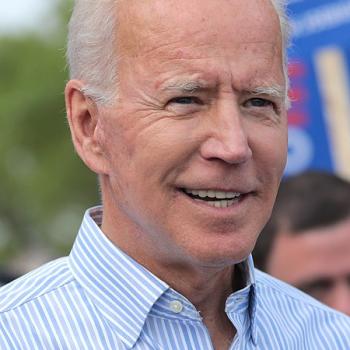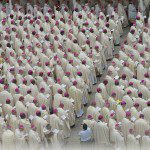I

t appears that COVID is worse in regions of Africa with the most intense persecution of Christians. My guess is that one reason why is that religious persecution usually walks in lockstep with ignorance, corruption and poor governance.
Whatever the reasons, the virus seems to be making an already tragic situation every more tragic.
From Global Christian Relief:
According to research, data indicates a direct correlation between the countries in sub-Saharan Africa that are most vulnerable to the virus and the countries where Christians face the most pressure for following Jesus. Specifically, four of the five most virus-vulnerable countries—the Democratic Republic of the Congo, Nigeria, Sudan and Cameroon—also count among the places in sub-Saharan Africa where life is hardest for Christians.
Though the 54 countries in sub-Saharan Africa are in their early days of the coronavirus pandemic, persecuted Christians like Yohannes are already feeling the effects. For Christians who are already persecuted, the pandemic gives way to even more ways believers can be discriminated against, exploited and attacked for their faith.
Six times smaller rations than Muslims
The economic impact of government-directed social distancing and lockdowns is especially difficult for pastors dependent on tithes for their income and serving in the most volatile areas. As these rules and guidelines prevent church members from working and attending church, more pastors will face great difficulty to feed their own families.
Global Christian Relief has received calls from some pastors asking for help with food. And widows and orphans with small incomes due to lockdown are unable to continue trading.
Specific targeting by Islamic radical groups like Boko Haram, ISIS, Fulani militants and the Allied Democratic Forces (ADF) across the region has displaced many thousands of Christians. In the Lakes, Sahel and Horn regions, the social and health infrastructure in IDP camps are unable to handle the far-reaching and rapidly spreading impact of a COVID-19 outbreak. Unless humanitarian aid workers get the funds and access to continue their work, believers in these camps will suffer intensely without water, sanitation and hygiene.
Our field also reports that in some Shariah-governed areas, the government is discriminating against Christians. Believers from towns in northern Nigeria’s Kaduna State, including Ungwan Boro, Sabon Tasha, Barnawa and Naraye, report they get six times smaller rations from the state than Muslim families.
Believers we talked to shared that a Christian family of four receives a grossly inadequate ration of a single packet of noodles and one small plate of uncooked rice.
Christians vulnerable to extremists’ ploys and attacks
Even in a pandemic, violent persecution continues. In some areas, such as Nigeria’s Middle Belt, Christians are living in a survival culture.
One pastor in the area shared: “We lie down at night, not knowing if we’ll wake.”
Between the end of March and Easter, Christian communities in both Kaduna and Plateau States suffered numerous attacks by extremists that killed 31 people and left homes destroyed.
In some areas, extremists are exploiting the opportunity to blame Christians for causing the pandemic. Our team has received such reports from Somalia, Uganda and Niger. The BBC reports that extremist group al-Shabab (linked with al-Qaeda) has warned Muslims to beware of infectious diseases such as coronavirus, which the group says are spread “by the crusader forces (Christians) who have invaded the country and the disbelieving countries that support them.”
Bulama Bukarti, a sub-Saharan Africa analyst at the Tony Blair Institute for Global Change, explains that if the pandemic grows in Muslim-majority areas, extremists will spread conspiracy theories about its origins, blaming the West, Jews and Zionists—whom these extremist groups call the “enemies of Islam.” If the spread of the pandemic is controlled and does not reach Muslim-majority areas, particularly those controlled by extremist groups, they will frame it as divine punishment against those areas.












